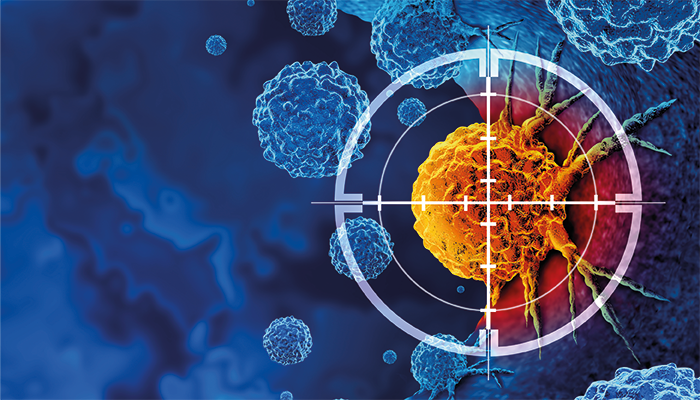
Credit: Adobe Stock
Explore the latest breakthroughs in mass spectrometry, including a novel method for identifying tumor-specific neoepitopes, a GC-MS/MS workflow for detecting organochlorine pesticides, and advanced HPLC-Orbitrap MS techniques for screening new psychoactive substances
Essential Reading
A Step Closer
Continuing with personalized medicine… Researchers from the German Cancer Research Center (DKFZ) and NCT Heidelberg recently developed optiPRM – a highly sensitive mass spec method to identify tumor-specific "neoepitopes." These mutated protein fragments are recognized by the immune system and are key to tailored cancer immunotherapies.
Mass spectrometry is the only technique that can directly confirm the presence of neoepitopes on cancer cells. However, standard MS methods often miss these low-abundance peptides. The new method developed by the research team overcomes this limitation by using synthesized peptides to optimize mass spectrometer settings for each neoepitope – enhancing sensitivity and enabling the detection of neoepitopes in minimal tissue samples.
“In this context, MS provides the ultimate proof that a neoepitope is presented on the surface of cancer cells - and is therefore a worthwhile therapeutic target. Our optiPRM protocol will help to provide this evidence from minimal tissue samples and suggest validated tumor epitopes to clinicians for individualized cancer therapy," explained co-author Angelika Riemer in a press release.
Worth Your Time...
Researchers develop a GC-MS/MS workflow to analyze 16 organochlorine pesticides and pesticide metabolites in serum – enabling efficient biomonitoring for large-scale studies. Link
A new HPLC-Orbitrap MS method successfully screens for new psychoactive substances (NPS), detecting multiple drugs in samples from drug addicts in China with 58.9 percent precision. Link
Molnupiravir (MO) treatment may cause liver injury by disrupting metabolite homeostasis and activating TLR, suggests study combining metabolomics and molecular biology. Link
Muhammad Salman Sajid and colleagues employ nano-LC/MS and successfully identify new potential biomarkers for hepatocellular carcinoma (HCC). Link
Community Corner
In Memory of Robert K. Boyd
Robert (Bob) K. Boyd sadly passed away on August 18. In Dietrich A. Volmer’s (Institute for Marine Biosciences, Canada) words from 2006, Boyd was one of “Canada’s most respected mass spectrometrists,” and had a distinguished career at the University of Guelph and the National Research Council of Canada.
He was also a longstanding member of ASMS, joining in 1979. The society expressed its sorrow and appreciation with an online post.
Our heartfelt condolences go out to his family, friends, and colleagues.




